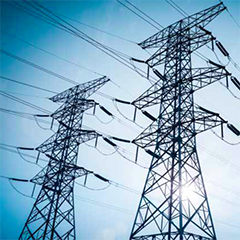Technology’s integration allows companies to streamline processes, says Simon Hobday, Energy Partner, Osborne Clarke. But, it’s also changing the model of how consumers use energy, and how companies provide it.
Since the turn of this century, increasing concern about climate change has driven a dramatic growth in renewable generation across Europe. Power plants have become smaller, localised and distributed more evenly across regions or nations, compared to the large centralised systems that characterised the middle of the twentieth-century. This is due to a mixture of the very nature of the technology, and the support regimes implemented through European and national legislation.
Today technology continues to transform the sector model, enabling more sophisticated distribution management processes, as well as radically altering the relationship between suppliers and consumer.
Communications and computing power
The impact of a growing proportion of disruptive, near zero marginal cost, low carbon generation is forcing traditional generators to re-evaluate the business case for not just building but also operating fossil fuelled plants. Simultaneously, directional changes in power flows across transmission and distribution networks are raising issues never considered when the networks were originally designed and constructed. This has coincided with a radical transformation in communications and computing power that has provided access to a wealth of data and information accessible at the swipe of an app on a device that fits in your pocket.
By way of example, over the past five years, there has been a significant growth in process management – utilising the ability to switch off or turn down processes for short periods of time and monetising that ability through mechanisms such as the Short Term Operating Reserve (STOR) market in the UK. This ability has grown out of greater controllability of physical plants through remote computer switching and computer based energy control and market trading mechanisms.
Modern communications and computing advances have the potential to drive far more efficient uses of energy and to harness the power of local generation. This will be particularly important for enabling countries to meet Europe’s 2020 decarbonisation targets set by national Governments, the European Union and on a global scale under the United Nations Framework Convention on Climate Change (UNFCCC).



























